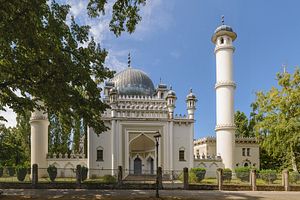Just over six years ago, on May 28, 2010, 86 members of the Ahmaddiya community were brutally massacred when militants affiliated with the Punjabi Taliban (a branch of the Tehreek-e-Taliban Pakistan) stormed Ahmadi mosques in Lahore, Punjab during Friday prayers. Pakistan is one of the few countries where Ahmadis have been declared non-Muslims, even though it is generally considered impermissible in Islam to declare a person non-Muslim if they believe in one God and the finality of Prophet Muhammad (as the “Lahore school” of the Ahmadis does).
The genesis of this declaration, and in fact the persecution of minority sects and minority religions in Pakistan, can to an extent be traced back to the country’s pre-partition political trajectory and the search for Islamic separatism in the subcontinent that centered around Sunni majoritarianism. This is in spite of the fact that Ahmadis played a key role in Pakistan’s independence from India and backed the nation’s founding father Muhammad Ali Jinnah’s political party All India Muslim League, much to the disappointment of orthodox ulema who advised him against it.
In 1974, when then prime minister Zulfiqar Ali Bhutto, paving the way for general-turned-president Zia ul Haq’s (1977-1988) Islamization cycle, penned down the Ahmaddiya community as non-Muslim in the second constitutional amendment, he compromised both their identity and security as citizens. This was done in order to appease Bhutto’s religious opponents. And it has resulted in over four decades of ongoing persecution for a minority Muslim community that gave Pakistan Sir Muhammad Zafarullah Khan (former foreign minister for Islamabad and former president of the UN General Assembly and the International Court of Justice) and Dr. Abdus Salam (a theoretical physicist and Pakistan’s first Nobel Prize winner in physics).
Since 1984, around 250 Ahmadis have been killed in Pakistan, of which thirty alone have been targeted in the financial capital, Karachi. Amid continued persecution and growing anti-Ahmadi propaganda, families have been forced to immigrate to Europe, the United States, Canada and other parts of the world. The anti-Ahmadi extremists have desecrated Ahmadi graves and attacked their places of worship and businesses across Pakistan. Ahmadis are prohibited, by law, from preaching or professing their beliefs. Their plight since the riots of 1953 has been documented in great detail by Ali Usman Qasmi in The Ahmadis and the Politics of Religious Exclusion in Pakistan.
This May, a 55-year-old businessman was shot dead in Karachi, Sindh. In early June, a 63-year-old homeopathic practitioner was killed in Attock, Punjab. It is presumed that they were both targeted, almost ten days apart, because they belonged to the Ahmaddiya community. These are reminders of the shortcomings of Pakistan’s counterterrorism framework, the National Action Plan, and the state’s lack of strategy for countering extremism.
Unfortunately, the seeds of extremism have penetrated too deep into the fabric of the Pakistani state and society for them to be countered by haphazardly written counterterrorism plans. It will take no less than a generational effort to root out extremism and regain Islam’s true message of peace, tolerance and respect for all faiths. Of the several products of religious extremism that plague Pakistan, sectarianism is going to remain the most dangerous one for the foreseeable future.
And from all the antidotes available for countering extremism, it is disheartening to see that the “jihad of the pen” (the ink of the scholar) lags far behind the “jihad of the sword” (the blood of the martyr), with the latter simply drowning out the voices of the former. The vacuum created by the Muslim community’s failure at large to promote, implement and then empower Sufi codes of love and compassion, enlarged by political self-interests of power-hungry Muslim rulers, have been filled by tribal codes of revenge. This has led to the disastrous consequences we witness at present in the shape of Al Qaeda and the Islamic State of Iraq and Syria.
To even begin reversing this trend and countering the narrative of extremism, efforts need to take place on familial, societal and communal levels; a bottom-up approach is required. On the local level, contemporary micro-narratives (or petit recits, a concept attributed to the French philosopher Jean-Francois Lyotard) appear to be drenched in bigotry and intolerance, which empower those metanarratives or grand narratives that fuel violent extremism and religious divides on the macro level.
It is on the local level, therefore, where the debate needs to take place and where knowledge must be shared and exchanged. It is on this level where value, tolerance and acceptance of ethnic and religious diversity need to be actively encouraged. And it is here, above all, where forgiveness should be budded.
Religious militants have repeatedly demonstrated the art of bridging the gap between the pen and the sword, often in favor of the latter. Their glossy propagandist literature urging the elimination of Shias, Ismailis, Ahmadis, Sufis and other minority groups and individuals, and followers of other faiths, and magazines citing cherry-picked verses from religious texts show how they value the written word as a key component in marketing the extremist narrative in local spheres in order to secure their longevity.
In view of this scenario, the non-violent, non-extremist, “silent moderate minority” of Muslims in Pakistan and elsewhere must turn to the proverbial pen as well and question how our legal frameworks (such as the constitutional amendments in Pakistan) have only encouraged extremism and intolerance in our societies. The citizens of Pakistan, with respect to the spirits of all religions, must set examples of inter-faith harmony, peaceful co-existence, or even miscegenation, with individuals of other beliefs and change the local narratives. The distance between the ink of extremism and our blood is less than we can fathom.
Zoha Waseem is a doctoral candidate at King’s College London.

































